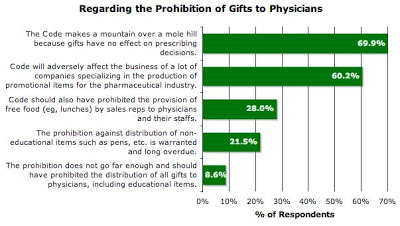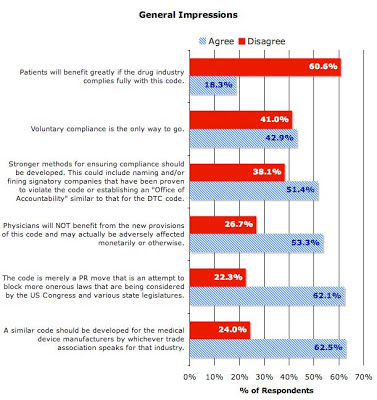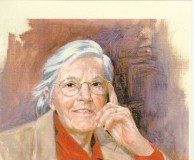
After reading a NYT story about PhRMA’s recent policy to discourage giving swag to doctors (“No Mug? Drug Makers Cut Out Goodies for Doctors“), Dimitriy was so pissed-off (“appalled” was his phrase) about PhRMA’s “easy” “cave to interest-group pressure instead of taking a principled stand for healthcare communications,” that he started a new Facebook group with the motto “Free Health Speech: Stand Up to Healthcare Marketing Hypocrisy!” Its mission:
“To educate general public about the value of responsible healthcare communications. To respond to unfair and hypocritical attacks on healthcare marketing. To demonstrate the difference between proper and improper influence.”
I joined the group although I am not sure I am one of the “like-minded individuals” that Dmitriy is seeking.
I agree with the first part of Dmitriy’s mission statement extolling the value of educating the public about “responsible healthcare communications” because that is what I think I am doing here on Pharma Marketing Blog. I do this by pointing out all the “irresponsible” healthcare communicating that pharmaceutical marketers are doing, explaining how they violate FDA law, industry standards (ie, PhRMA guidelines), and ethical standards.
But Dmitriy starts out right away condemning PhRMA and the drug industry for promulgating standards on interactions with healthcare professionals. Apparently, many people who support the drug industry agree with Dmitriy and think these standards will not benefit patients and the ban on free gifts to physicians makes a mountain out of a mole hill, if a survey I conducted can be believed (see “PhRMA’s New Code on Interactions with Healthcare Professionals: Survey Results and Discussion of Issues“):
General Impressions. Respondents were asked, “Please indicate your level of agreement or disagreement with the following general statements regarding the new PhRMA code.” Plotted here are results from the top 2 boxes (Strongly agree/Somewhat agree) and the bottom 2 boxes (Strongly disagree/Somewhat disagree). Click on image for an enlarged view. See more results from the survey here.
Regarding the Prohibition of Gifts to Physicians. Respondents were asked, “Regarding the prohibition of the distribution of gifts to physicians, please indicate which of the following statements you agree with.” Click on image for an enlarged view. See more results from the survey here.
Dmitriy asks (see here):
So where is the hypocrisy in healthcare marketing restrictions?
The idea that healthcare marketing must be severely restricted, with banning gifts to physicians being just one example, is based on several premises. These premises keep getting cited by the proponents in various forms.
He goes on to summarize his “Top 3” myths of what is wrong with that line of thinking.
Myth #1: Paid marketing always causes improper influence
“But if a pen or a cup is there to simply *remind* the doctor about that particular brand available, what is wrong with this if the prescribing decision is still made on merits of patient’s case?” asks Dmitriy.
To which I would respond: It’s more than a reminder, it’s implanting a brand in the physician’s head (the first tenet of marketing 101). See “Pens Put Brands in Docs’ Brains and Profit in Pharma’s Pockets” for more about that.
The distribution of branded tchotchkes may be a legitimate type of marketing, but is it “responsible healthcare communications?” There’s simply not any communication going on when a sales rep drops off dozens of pens with brand logos at a doctor’s office. Communication happens when the rep talks to the doctor! Let’s focus on that rather than bemoaning the loss of free gifts. Many sales reps over at CafePharma have expressed the same sentiment and are thankful to be free from the burden of bearing gifts rather than information.
If you are a doctor and miss the free office supplies, get over it!
Myth #2: Unpaid communication is free of improper influences
I agree with what Dmitriy says under this heading, because it is exactly what I just said above: “The real scandal is that media obsession with little things like cups and pens distracts attention from the real problem: influences are everywhere. Everyone is always influencing everyone else. Physicians interacting with physicians. Patients talking among themselves. Patients-to-physicians and vice versa. Medical journals. Pharma sponsored CMEs. Grants to medical schools. Academic careers staked on this or that concept. Everyone has an agenda and there are far more powerful motivators to do something wrong, that little trinkets. Social and professional pressures could be way stronger than monetary and shifting blame to marketing is an easy cop-out to avoid confronting the real influences.”
Dmitriy, you are TOO focused yourself on the trinket issue. Get over it and let’s discuss these other issues you bring up. I remind you that the media do not ONLY focus on trinkets like you seem to be doing. The media has lots of stories about all these other issues. Why not address those stories in your analysis?
Myth #3: Marketing is unnecessary and never mixes with health
“Newsflash,” says Dmitriy, “we are all marketers! The only difference with *paid* marketing is using money to expand the reach and effectiveness of the message. There is nothing wrong with that as long as the message itself is not improper or deceptive.”
Dmitriy’s remarks remind me of the Google person who said marketing/advertising is “democratic” (see “Is Advertising Democratic? Girl from Google Thinks So!“). Yes, I am a marketer too. But I cannot compete with drug companies who spend $billions marketing to physicians.
Ever heard the phrase “Money talks, nobody walks?” That’s why I think “counter-detailing” efforts are like pissing into the wind (see here).
There’s definitely NOT a level playing field when it comes to marketing to physicians. And maybe “leveling” is what all the guidelines, regulations, and laws are all about. When that Utopian ideal is reached, then we might have “responsible healthcare communications” from a variety of sources.










![6 Digital Tools at the Center of Healthcare Digitalization [INFOGRAPHIC]](http://ec2-54-175-84-28.compute-1.amazonaws.com/pharma-mkting.com/wp-content/uploads/2021/04/6DigitalTools_600px-100x70.jpg)




